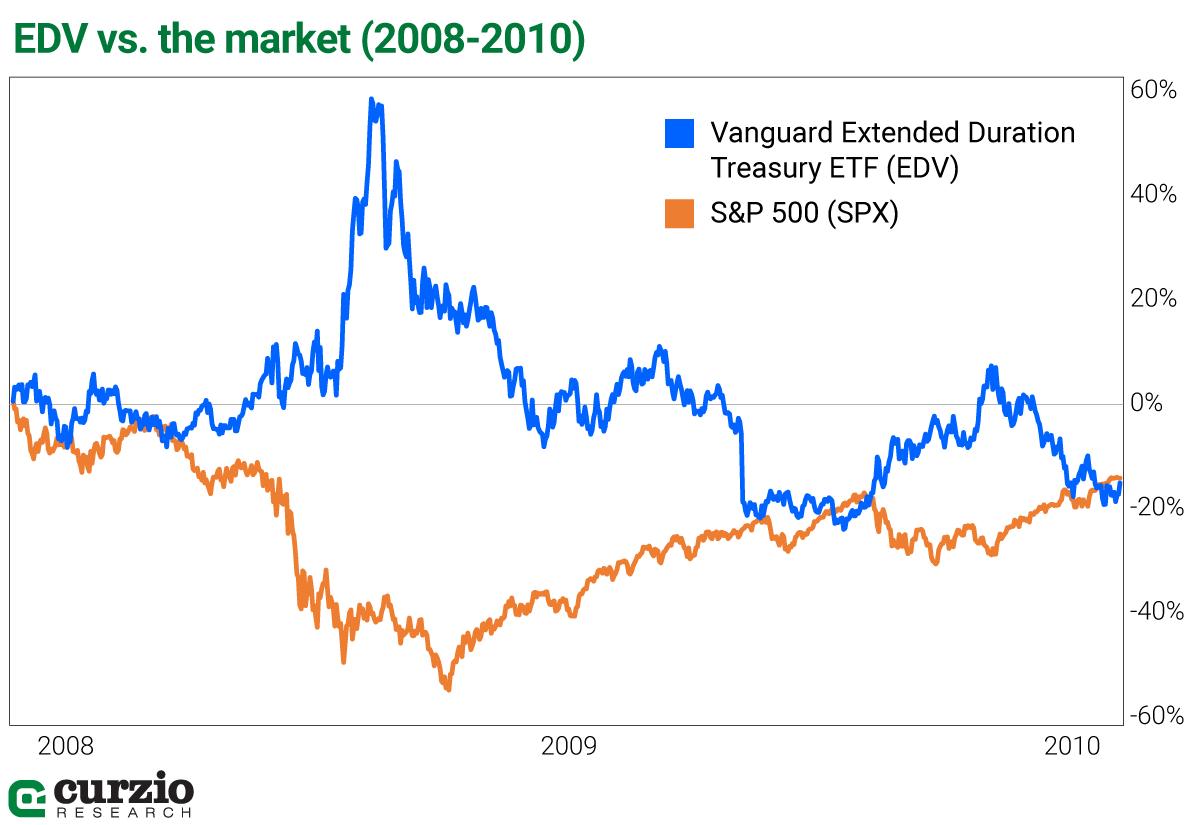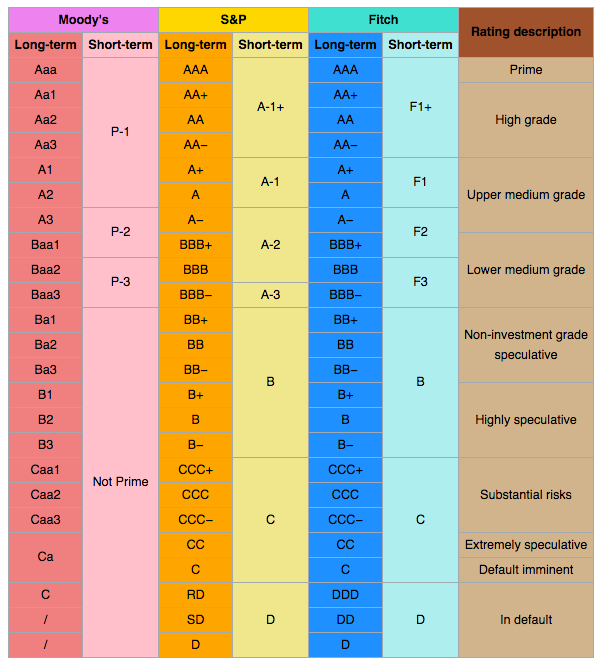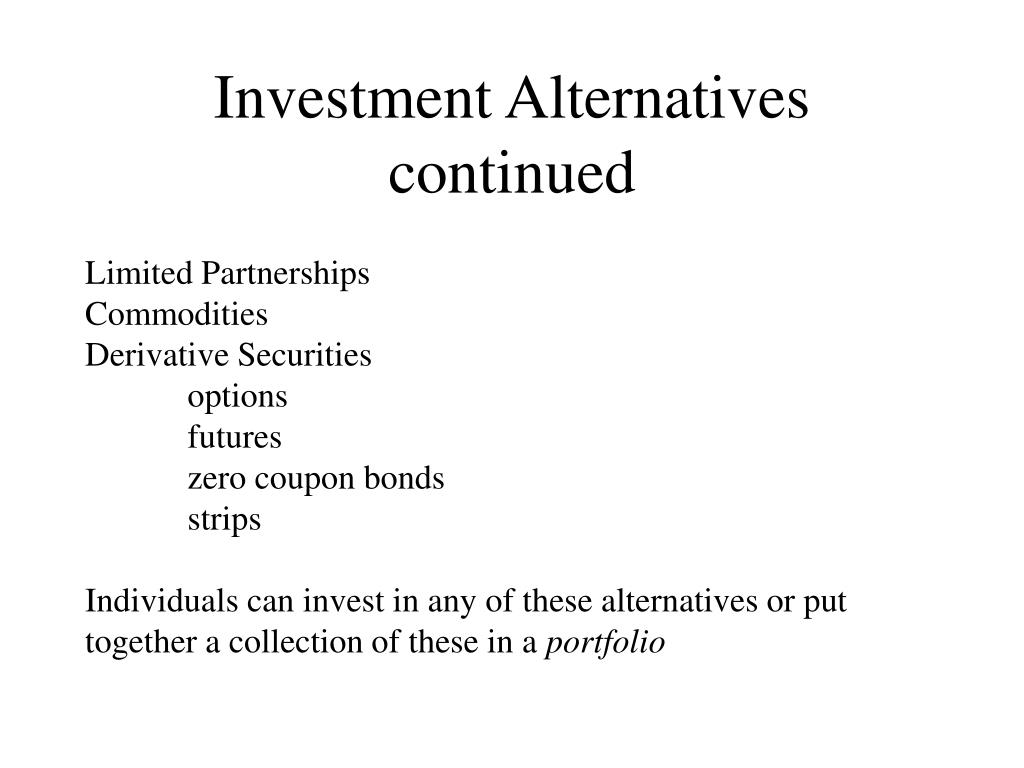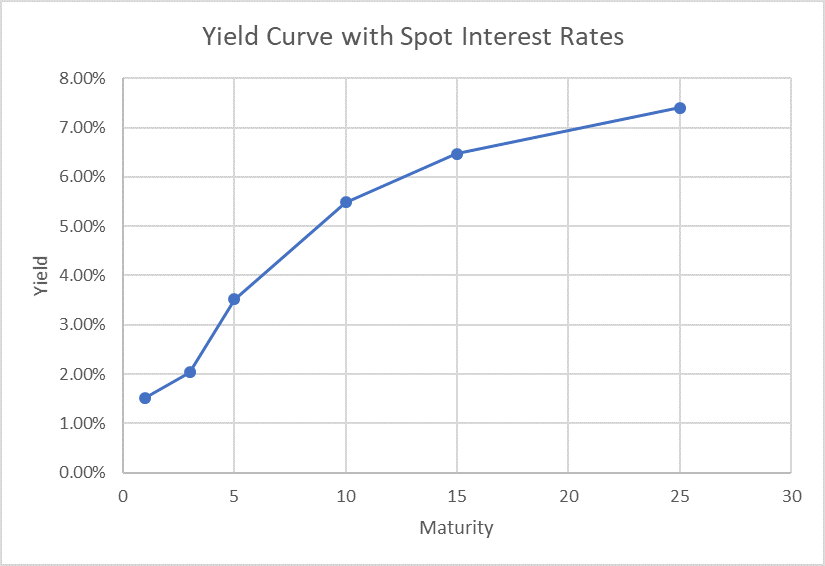43 coupon vs zero coupon bonds
calculator.me › savings › zero-coupon-bondsZero Coupon Bond Value Calculator: Calculate Price, Yield to ... Economist Gary Shilling mentioned holders of 30-year zero-coupon bonds purchased in the early 1980s outperformed the SP 500 with dividends reinvested by 500% over the subsequent 30-years as interest rates fell from around 14.6% to around 3%. I started investing in 30 Year zero coupon treasuries. Now, zero coupon bonds don't pay any interest ... What Is a Zero-Coupon Bond? | The Motley Fool Understanding zero-coupon bonds. Zero-coupon bonds make money by being sold to investors at substantial discounts to face value. Zero-coupon bonds compensate for not paying any interest over the ...
What Is a Zero-Coupon Bond? Definition, Characteristics & Example This difference between a zero-coupon bond's purchase price and its face value (the investor's profit if they hold to term) is often referred to as imputed interest. Impute means "to assign or...
Coupon vs zero coupon bonds
› treasury-bills-vs-bondsTreasury Bills vs Bonds | Top 5 Differences (with Infographics) Bonds are debt instruments also issued by the government or corporate for tenure equal to or more than 2 years period. T-bills do not pay any coupon. They are floated as a zero-coupon bond to the investors, they are issued at discounts, and the investors receive the face value at the end of the tenure, which is the return on their investment. efinancemanagement.com › sources-of-finance › bondsAll the 21 Types of Bonds | General Features and Valuation | eFM Apr 28, 2022 · In the US, Government dealer firms usually break down a coupon-bearing bond into a series of zero-coupon bonds by considering each cash flow as a separate bond. For example, a 5-year semiannual coupon-bearing bond can be split into 10 zero-coupon bonds with coupon amount as face value and 1 zero-coupon bond with the principal amount as the face ... About Discount Bonds versus Zero Coupon Bonds Zero Coupon bonds generally have a Maturity Date that is more than a year and a half out from the issue date. Unlike discount bonds, Zero Coupons do take compounding into account, and are generally issued with a semi-annual compounding yield; therefore, they have a Payment Frequency equal to the standard payment frequency of semi-annual.
Coupon vs zero coupon bonds. Zero Coupon Bond | Investor.gov Zero coupon bonds are bonds that do not pay interest during the life of the bonds. Instead, investors buy zero coupon bonds at a deep discount from their face value, which is the amount the investor will receive when the bond "matures" or comes due. PDF Coupon Bonds and Zeroes "zero-coupon bonds," securities with just a single cash flow at maturity. • We can observe the prices of zeroes in the form of Treasury STRIPS, but more typically people infer them from a set of coupon bond prices, because those markets are more active and complete. • Then we use the prices of these zero-coupon building What is a Zero Coupon Bond? Who Should Invest? | Scripbox A coupon is an interest the bond issuer pays the bondholder. Coupon payments happen periodically from the time of issuance of the bond until its maturity. A zero coupon bond is a type of fixed income security that does not pay any interest to the bondholder. It is also known as a discount bond. The One-Minute Guide to Zero Coupon Bonds | FINRA.org Zeros, as they are sometimes called, are bonds that pay no coupon or interest payment. will likely fall. Instead of getting interest payments, with a zero you buy the bond at a discount from the face value of the bond, and are paid the face amount when the bond matures. For example, you might pay $3,500 to purchase a 20-year zero-coupon bond ...
Explain Zero Coupon Bonds versus Coupon Bonds - QS Study The zero coupon bond contrasts with the coupon bond, and is the most straightforward of all bonds. The face of the certificate has the name of the investor, the nominal (face) value and the maturity date. It is issued at a discount rate, which reflects the interest rate that the investor is prepared to pay, i.e. the market rate for 3-year money. Understanding Zero Coupon Bonds - Part One - The Balance Here are some general characteristics of zero coupon bonds: Issued at deep discount and redeemed at full face value Some issuers may call zeros before maturity You must pay tax on interest annually even though you don't receive it until maturity Zero coupon bonds are more volatile than regular bonds Advantages and Risks of Zero Coupon Treasury Bonds Zero-coupon bonds are also appealing for investors who wish to pass wealth on to their heirs but are concerned about income taxes or gift taxes. If a zero-coupon bond is purchased for $1,000 and... Bond Economics: Primer: Par And Zero Coupon Yield Curves Primer: Par And Zero Coupon Yield Curves. Par and zero coupon curves are two common ways of specifying a yield curve. Par coupon yields are quite often encountered in economic analysis of bond yields, such as the Fed H.15 yield series. Zero coupon curves are a building block for interest rate pricers, but they are less commonly encountered away ...
Zero coupon bond definition — AccountingTools January 15, 2022 What is a Zero Coupon Bond? A zero coupon bond is a bond with no stated interest rate. Investors purchase these bonds at a considerable discount to their face value in order to earn an effective interest rate. An example of a zero coupon bond is a U.S. savings bond. Disadvantages of Zero Coupon Bonds › Zero-Coupon-BondZero Coupon Bond Yield - Formula (with Calculator) Zero Coupon Bond Effective Yield Formula vs. BEY Formula. The zero coupon bond effective yield formula shown up top takes into consideration the effect of compounding. For example, suppose that a discount bond has five years until maturity. If the number of years is used for n, then the annual yield is calculated. Considering that multiple ... The Zero Coupon Bond: Pricing and Charactertistics "Zero Coupon Bond" or "Strip Bond" are bonds that are created by "stripping" a normal bond into its constituent parts: the "Coupons" and "Residual" or "Resid". An investment dealer will first buy a bond and then "strip" it. The individual coupons are the semi-annual interest payments due on the bond prior to maturity. Using Zero-Coupon Bonds Introduction. A zero-coupon bond is a corporate, Treasury, or municipal debt instrument that pays no periodic interest. Typically, the bond is redeemed at maturity for its full face value. It is a security issued at a discount from its face value, or it may be a coupon bond stripped of its coupons and repackaged as a zero-coupon bond.
› zero-coupon-bondZero Coupon Bond (Definition, Formula, Examples, Calculations) However, it is pertinent to note here that there are certain categories of Zero Coupon Bonds, which can overcome the taxation problem. Recommended Articles. This has been a guide to what is Zero Coupon Bond. Here we discuss how to calculate Zero Coupon Bond using its pricing formula along with its advantages and disadvantages and practical ...
What is the difference between a zero-coupon bond and a regular ... - Quora Simple, zero coupon bonds are sold at significantly lower prices or at deep discounts- say a bond with a face value of $1000 will sell for lower than its face value say $750. So at maturity while the investor would not receive any interest, he will receive the full face value of the bond. Profit=$1000-$750=$250 (Numbers are meant purely

How many alpha and pi bonds are in the following compounds? [{Image src='bonds866646789105513660 ...
Zero-Coupon Bonds: Pros and Cons Higher Yields: Firstly, zero-coupon bonds are perceived as higher-risk bonds. This is because investors pay money upfront and then do not have much control over it. Also, since the money is locked in over longer periods of time, the perceived risk is more.
Zero Coupon Bond - FXCM Markets By contrast, a traditional US$1,000 bond with a 3% coupon is offered at US$1,000, and the investor receives coupon payments equivalent to 3% every year until the bond matures, at which time the investor gets his US$1,000 back. Zero coupon bonds allow investors to pay a sharp discount to the eventual maturity value of the bond.
zero coupon bonds definition and meaning | AccountingCoach zero coupon bonds definition. A bond without a stated interest rate. Because no interest is paid, the bond will sell for a discount from its maturity value. Rather than receiving interest, an investor's compensation will be the difference between the discounted price at which the bond was purchased and the price the investor receives when ...
How Do Zero Coupon Bonds Work? - SmartAsset A zero coupon bond differs from regular bonds in that they do not pay income in the form of coupons. We explain how it works and where to invest in them. Menu burger Close thin Facebook Twitter Google plus Linked in Reddit Email arrow-right-sm arrow-right Loading Home Buying Calculators How Much House Can I Afford? Mortgage Calculator Rent vs Buy
› terms › cCoupon Definition - Investopedia Apr 02, 2020 · Coupon: The annual interest rate paid on a bond, expressed as a percentage of the face value.
Zero-Coupon Bond: Formula and Excel Calculator In contrast, for zero-coupon bonds, the difference between the face value and the bond's purchase price represents the bondholder's return. Due to the absence of coupon payments, zero-coupon bonds are purchased at steep discounts from their face value, as the next section will explain more in-depth. Zero-Coupon Bond - Bondholder Return
Zero-Coupon Bond - Definition, How It Works, Formula A zero-coupon bond is a bond that pays no interest and trades at a discount to its face value. It is also called a pure discount bond or deep discount bond. U.S. Treasury bills are an example of a zero-coupon bond. Summary A zero-coupon bond is a bond that pays no interest. The bond trades at a discount to its face value.
› terms › zZero-Coupon Bond Definition - Investopedia Feb 26, 2022 · Zero-Coupon Bond: A zero-coupon bond is a debt security that doesn't pay interest (a coupon) but is traded at a deep discount, rendering profit at maturity when the bond is redeemed for its full ...
Should I Invest in Zero Coupon Bonds? | The Motley Fool So for instance, a 10-year zero coupon bond priced when prevailing yields were 3% would typically get auctioned for roughly $750 per $1,000 in face value. The $250 difference would essentially...
Difference Between a Zero Coupon CD & a Bond - Zacks Differences: Interest Repayments and Return on Investment The repayment of interest on a bond will depend on the terms set out in the bond agreement itself, but they're usually paid out...
Zero Coupon Bonds Explained (With Examples) - Fervent The interest rate (aka yield) of zero coupon bonds tends to be higher than the interest rate of say, straight / vanilla bonds. And that's ultimately because for the most part, zero coupon bonds tend to be riskier securities. The higher interest rate / higher yield is meant to compensate for, or pay for, the higher risk.
What is the difference between a zero-coupon bond and a regular bond? The difference between a regular bond and a zero-coupon bond is the payment of interest, otherwise known as coupons. A regular bond pays interest to bondholders, while a zero-coupon bond does not...
About Discount Bonds versus Zero Coupon Bonds Zero Coupon bonds generally have a Maturity Date that is more than a year and a half out from the issue date. Unlike discount bonds, Zero Coupons do take compounding into account, and are generally issued with a semi-annual compounding yield; therefore, they have a Payment Frequency equal to the standard payment frequency of semi-annual.
efinancemanagement.com › sources-of-finance › bondsAll the 21 Types of Bonds | General Features and Valuation | eFM Apr 28, 2022 · In the US, Government dealer firms usually break down a coupon-bearing bond into a series of zero-coupon bonds by considering each cash flow as a separate bond. For example, a 5-year semiannual coupon-bearing bond can be split into 10 zero-coupon bonds with coupon amount as face value and 1 zero-coupon bond with the principal amount as the face ...
› treasury-bills-vs-bondsTreasury Bills vs Bonds | Top 5 Differences (with Infographics) Bonds are debt instruments also issued by the government or corporate for tenure equal to or more than 2 years period. T-bills do not pay any coupon. They are floated as a zero-coupon bond to the investors, they are issued at discounts, and the investors receive the face value at the end of the tenure, which is the return on their investment.














Post a Comment for "43 coupon vs zero coupon bonds"